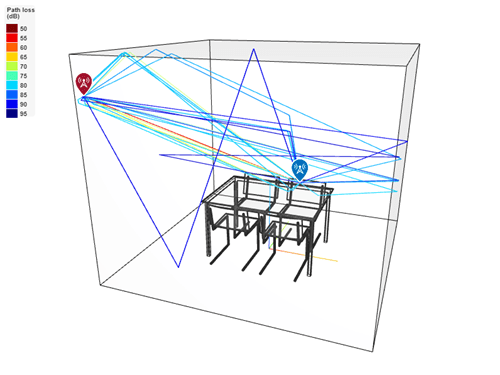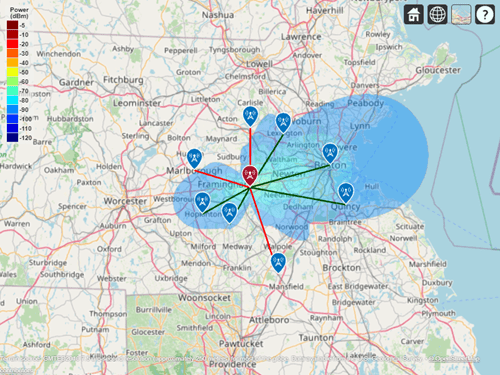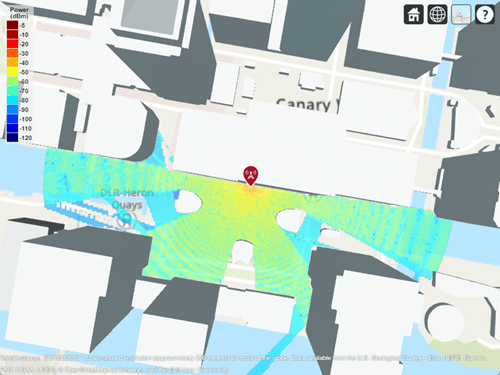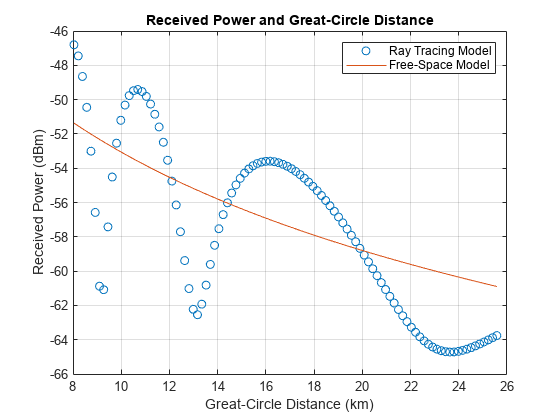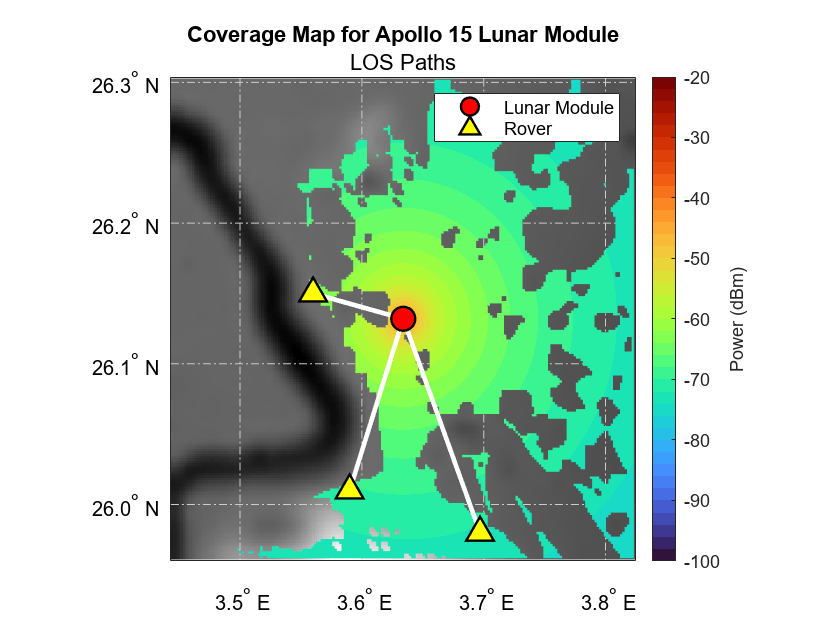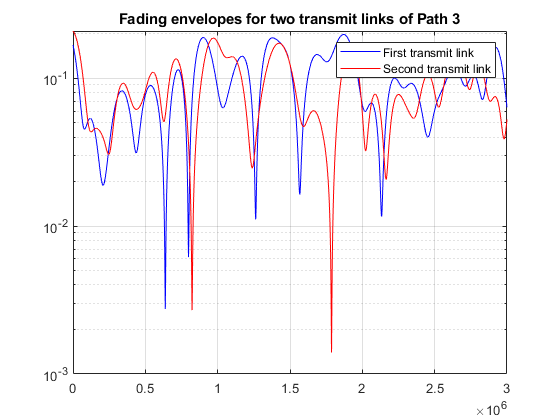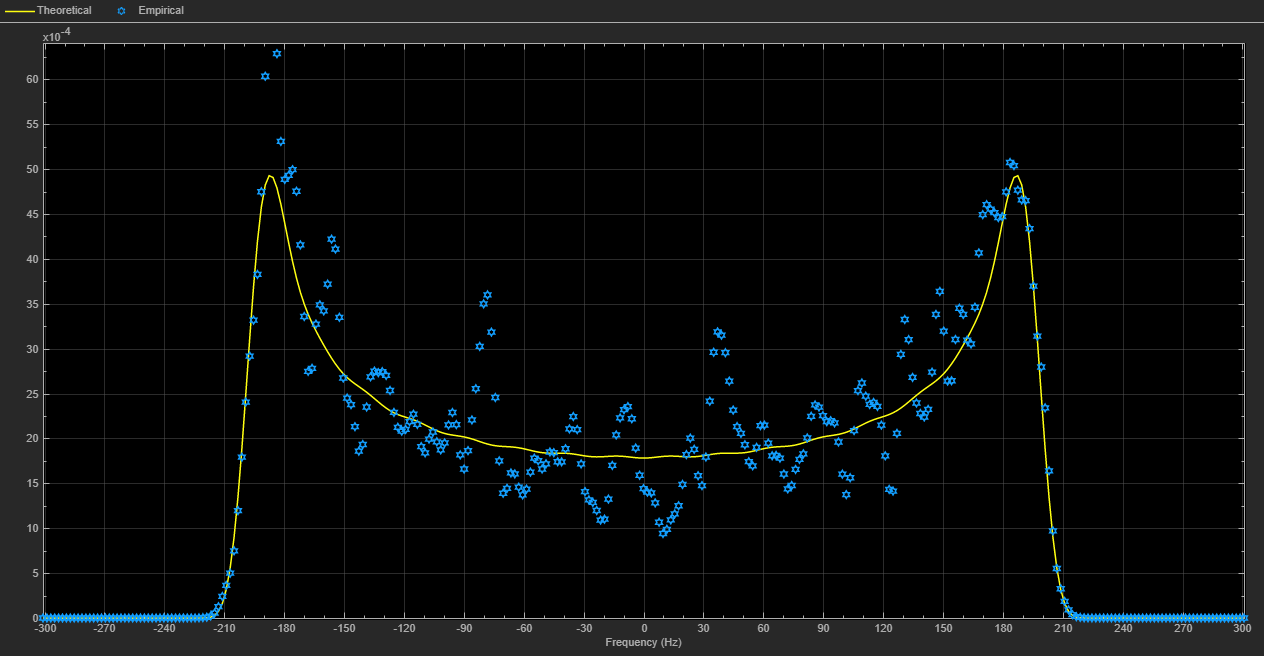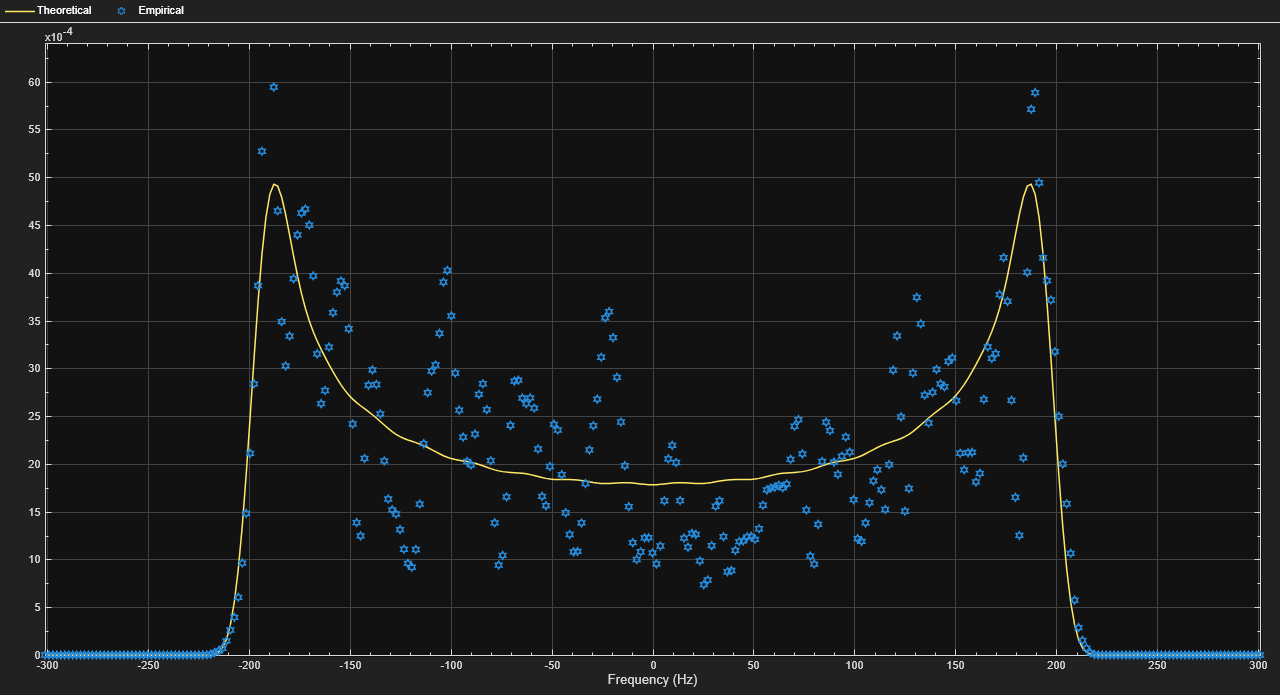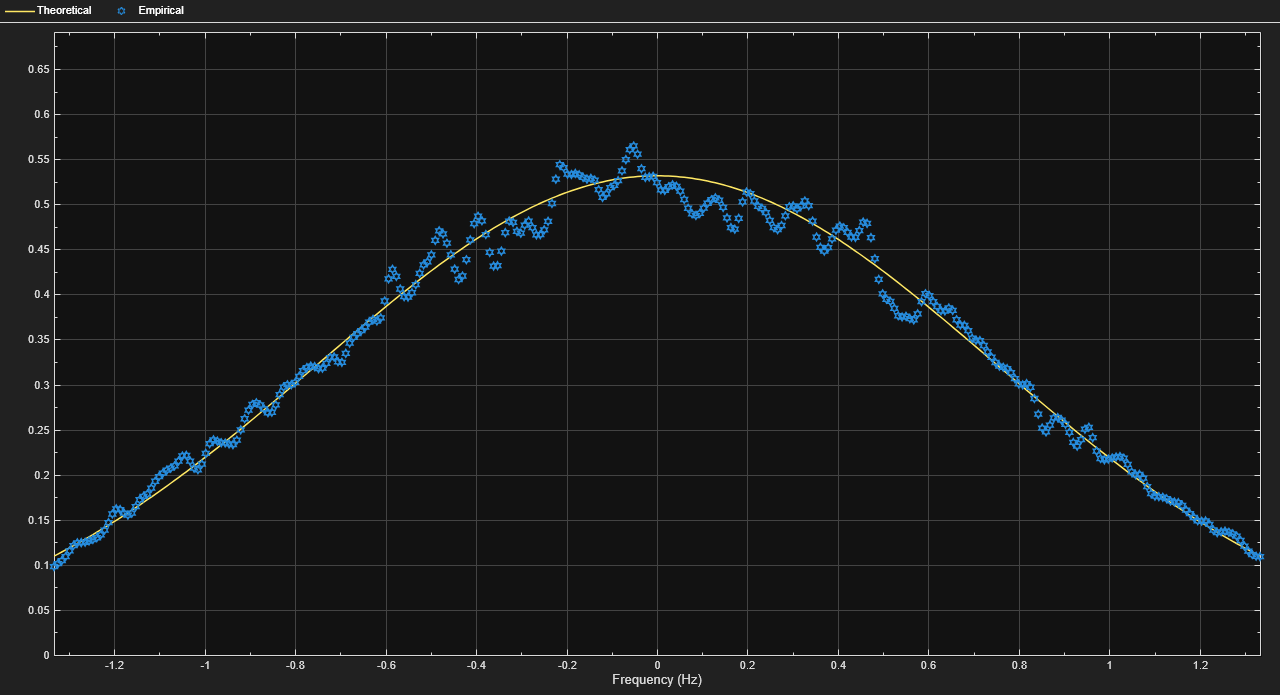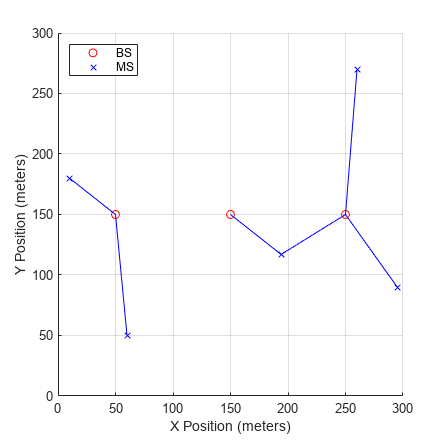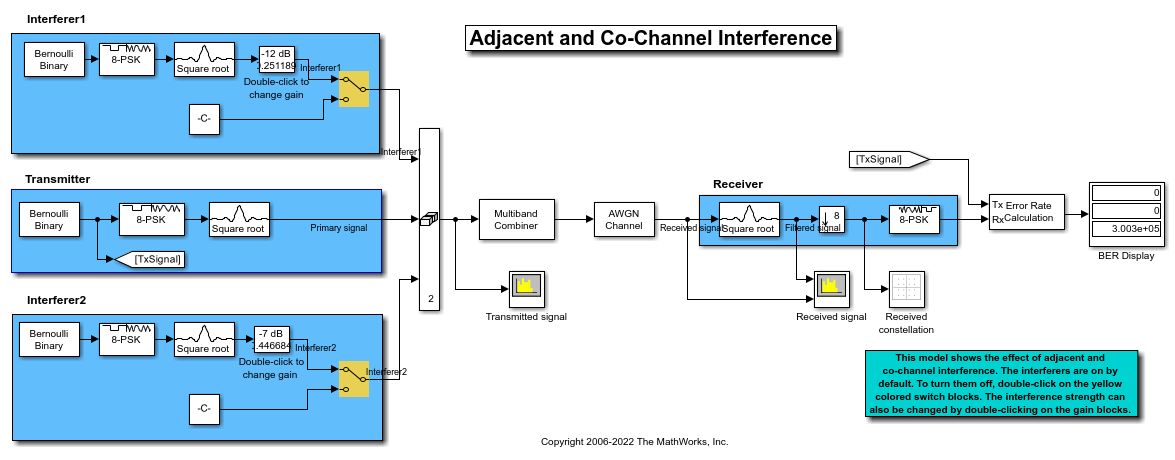传播和信道模型
站点与地形可视化、传播模型设定(包括 Longley-Rice)、信号强度、信号覆盖图以及静态和衰落信道模型
射频路径传播建模描述电磁辐射从发射点出发,随着信号在周围环境中传播的行为。对射频传播路径进行建模并在三维中对其可视化。
信道建模描述通信系统链路中的空口环境。传播和信道建模分析对于理解电磁波在不同场景中从发射机到接收机如何产生损失至关重要。对具有瑞利、莱斯或 WINNER II 衰落特性的含噪 SISO 和 MIMO 信道进行建模和可视化。此外,还提供大气损伤和多种多普勒频谱形状。
App
| 无线信道设计器 | Design and analyze wireless channels (自 R2025a 起) |
函数
对象
模块
主题
射频传播
- Choose a Propagation Model
When to use the different propagation models based on frequency, type, and limitations. - RF Propagation and Visualization
Visualize coverage maps, SINR maps, and propagation paths in outdoor and indoor environments. - Ray Tracing for Wireless Communications
Ray tracing models predict propagation paths and corresponding losses using 3-D environment geometry and electromagnetic analysis. - Customize Buildings for Ray Tracing Analysis
Customize the buildings stored in an OpenStreetMap® file and then perform ray tracing analysis on a scene created from the buildings. (自 R2023b 起) - Accelerate Ray Tracing Analysis Using GPU
Perform accelerated ray tracing analysis using a GPU. (自 R2025a 起)
信道建模
- AWGN Channel
Model channel and RF impairment characteristics. - Fading Channels
Defining a fading channel object and applying it to a signal. - Channel Visualization
These channel modeling System objects and blocks in Communications Toolbox™ include an option to visualize the characteristics of a fading channel. - WINNER II Channel
Model the WINNER II channel using the WINNER II Channel Model for Communications Toolbox add-on.

